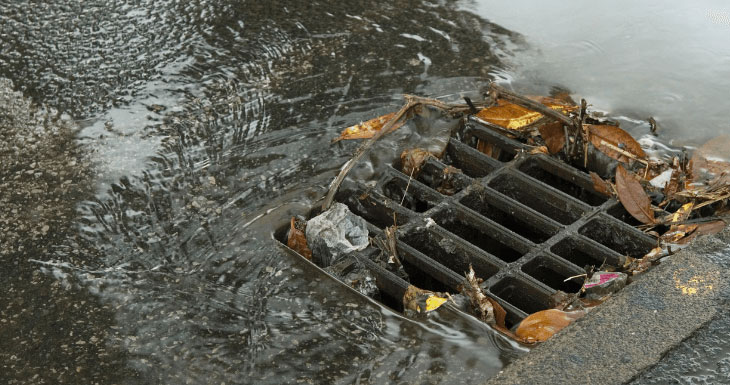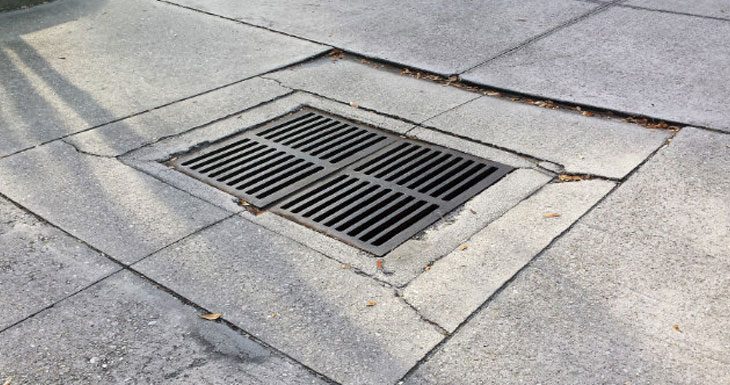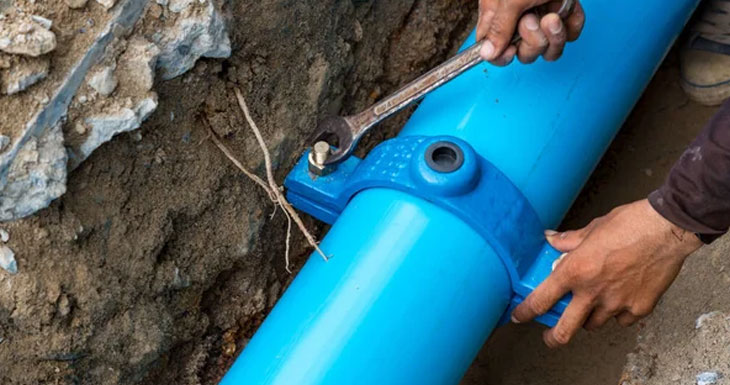Plumbing emergencies can happen when we least expect them and can be a nightmare. From burst pipes to clogged drains, these unexpected incidents can cause a lot of damage and disruption to our daily lives. That’s why it’s important to be prepared for any plumbing emergency that may come our way. In this ultimate guide to plumbing emergency preparedness, we’ll take you through some essential tips and tricks that every homeowner should know. Whether you’re a seasoned DIY enthusiast or a complete novice, our guide will equip you with the knowledge and tools you need to tackle any plumbing emergency with confidence.
Plumbing Emergencies and How to Fix Them
Plumbing emergencies can come in many forms, and knowing how to handle each is important. Here are some of the most common plumbing emergencies and what you can do to deal with them.
Burst Pipes
If you notice a burst pipe, the first thing you should do is turn off the water supply to your home so it won’t cause damage to your home. Turning off your water supply will prevent further damage from occurring. The next, you should try to locate the source of the leak. If you cannot find the leak, or if the leak is in a difficult-to-reach area, you should call a plumber immediately. In the meantime, you can use buckets or towels to collect any water that’s leaking.
Clogged Drains
A clogged drain can cause water to back up and overflow, which can lead to water damage and a foul odor. Before calling a plumber, you can try using a plunger or drain snake to clear the blockage. Call a plumber if these methods don’t work or the clog is difficult to reach. To prevent clogged drains in the future, avoid pouring grease or oil down your drains, and use a drain cover to catch any hair or debris.
Water Heater Problems
If your water heater malfunctions, this can lead to cold showers and other inconveniences. If you notice that your water heater isn’t working properly, the first thing you should do is check the pilot light. If the pilot light is out, you can relight it yourself. Call a plumber if the pilot light is on but the water isn’t heating up. To prevent water heater problems in the future, have your water heater serviced regularly, and consider upgrading to a newer, more energy-efficient model.
Tools and Equipment for Plumbing Emergency Preparedness
Having the right tools and equipment is important to be prepared for a plumbing emergency. Here are some essential items that every homeowner should have in their plumbing emergency kit.
Plunger
A simple tool that is effective for clearing clogged drains.
Drain Snake
A drain snake is a long, flexible tool. It’s handy for clogs that are deep in the pipes.
Water Shut-Off Tool
Make sure you know where your main water shut-off valve is located, and keep a water shut-off tool nearby.
Bucket and Towels
Can be used to collect water in the event of a burst pipe or other plumbing emergency.
Flashlight
For inspecting pipes and other hard-to-reach areas.
Tips for Preventing Plumbing Emergencies
While it’s not always possible to prevent all plumbing emergencies, there are a few steps you can take to reduce your risk. Here are some of them:
Regular Maintenance
Regular maintenance is key to preventing plumbing emergencies. Have your pipes and water heater serviced regularly by a professional plumber.
Proper Disposal
Dispose of grease, oil, and other substances by throwing them in the trash and not on your sink.
Use Drain Covers
Use drain covers in your sinks and showers to catch hair and other debris.
Insulate Pipes
Try insulating your pipes during cold weather to prevent them from freezing and bursting.
Know Your Limits
While it’s important to be prepared for a plumbing emergency, it’s also important to know when to call a professional plumber. If you’re unsure how to handle a plumbing issue, it’s always better to be safe than sorry.
Creating a Plumbing Emergency Preparedness Plan
In addition to having the right tools and equipment on hand, it’s important to have a plumbing emergency preparedness plan in place. Here are some steps you can take to create a plan for your home.
Identify Potential Risks
Take a walk through your home and identify any potential plumbing risks, such as old pipes, leaky faucets, or a water heater that’s nearing the end of its lifespan.
What to Do During a Plumbing Emergency
In a plumbing emergency, staying calm and taking action quickly is important. Here are some steps you can take during a plumbing emergency.
Turn Off the Water
If you notice a burst pipe or other plumbing emergency, the first thing you should do is turn off the water supply to your home. By doing this, it will prevent any further damage from occurring.
Call a Plumber
Call a professional plumber immediately if you cannot fix the problem yourself or if the problem is beyond your expertise.
How to Shut Off Water and Gas in Your Home
Knowing how to shut off your home’s water and gas supply can be a lifesaver in a plumbing emergency.
Finding a Reliable Emergency Plumber
In a plumbing emergency, it’s crucial to have a reliable emergency plumber that you can call. Here are some tips for finding a plumber that you can trust.
Ask for Referrals
Ask friends and family members for referrals to plumbers they’ve used and trust.
Check Credentials
Make sure the plumber you hire is licensed and insured.
Get a Written Estimate
Before hiring a plumber, get a written estimate for the work that needs to be done.
Read Reviews
Read online reviews from past customers to get an idea of the plumber’s reputation.
Importance of Plumbing Emergency Preparedness
Being prepared for a plumbing emergency can save you time, money, and stress in the long run. By following the tips and tricks outlined in this guide, you can be confident that you’re ready to handle any plumbing emergency that comes your way. Remember to stay calm, act quickly, and call a professional plumber if you cannot fix the problem yourself. With a little preparation, you can rest easy knowing you’re ready for anything.










